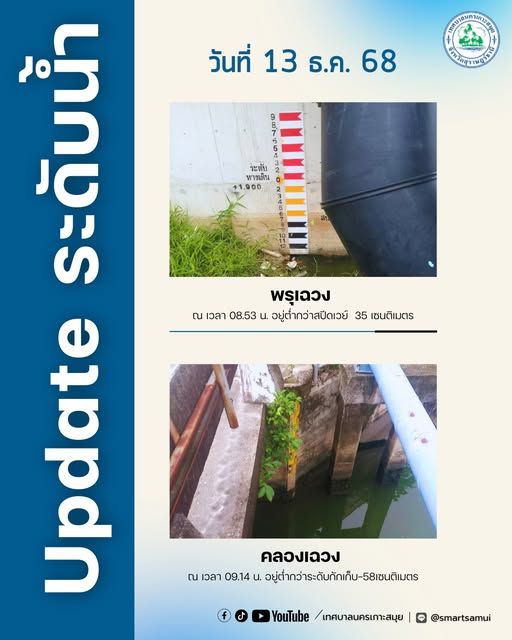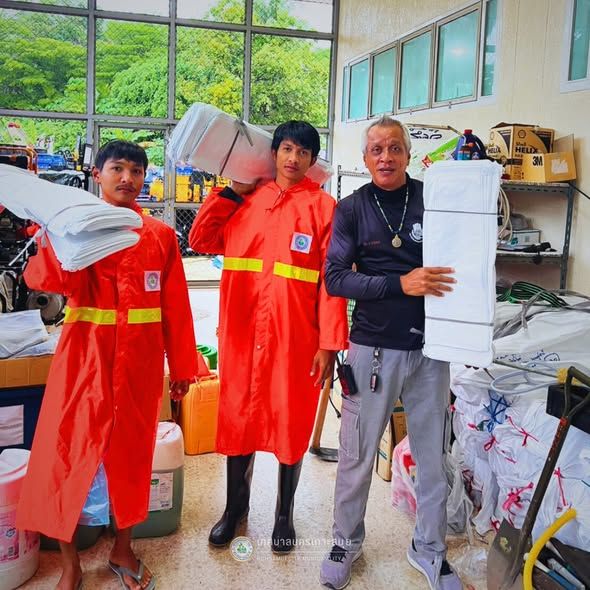🌿🚫 Discover the untamed beauty of Thailand’s national parks while respecting the enhanced alcohol ban. Let’s keep these parks pristine and litter-free for everyone to enjoy! 🌳🌞 #RespectTheBan #NatureLover #ThailandAdventure #PristineBeauty #LitterFree #NationalParkExperience
As the cool season ushers in an influx of visitors to the north of Thailand, seven key national parks are ramping up efforts to enforce a stringent alcohol ban. This initiative is part of a broader strategy to maintain the pristine nature of these protected areas while providing a pleasant experience for all park-goers.
Ban on Alcohol to Protect Parks and Visitors
The Department of National Parks, Wildlife and Plant Conservation (DNP) had previously announced a prohibition on the consumption of alcoholic beverages within national parks in 2021. This policy applies to every visitor without exception. Songkran Pakchokdee, the director of the StopDrink Network, emphasizes that the ban is critical for safeguarding the enjoyment of visitors who prefer to bask in the natural splendor without the disturbances of intoxication. More importantly, the measure also serves to protect the parks from the litter left behind by those who choose to drink.
Consequences for Violating the Ban
To reinforce the seriousness of the ban, penalties have been established for those who do not comply. Visitors caught with alcohol can face a fine of up to 1,000 baht or even a jail sentence of up to one month. These repercussions underline the commitment of park authorities to uphold the regulations.
Specific Parks and Preventive Actions
The national parks in the spotlight include Doi Suthep-Pui, Op Khan, Phu Hin Rong Kla, Doi Inthanon, Chae Son, Phu Soi Dao, and Phu Chi Fa. Each park has developed unique strategies to communicate and enforce the ban. For example, in Suthep-Pui National Park, visitors are welcomed by warning signs and social media reminders about the prohibition. Additionally, park staff encourage visitors to engage in environmental protection efforts, including the removal of all rubbish from campsites.
Op Khan National Park, which has a single entry point, enforces the ban through standard checks for alcoholic beverages upon entrance. Yet, given the anticipated rise in visitor numbers, the park is considering the implementation of random patrols at camping sites to ensure adherence to the ban.
Importance of Seasonal Vigilance
The cold season is a particularly busy time for these northern reserves, attracting a significant number of tourists eager to experience Thailand’s cooler climate and stunning natural landscapes. The increased visitor traffic necessitates heightened vigilance from park officials to ensure that the alcohol ban is respected and the parks remain safe and enjoyable for everyone.
Frequently Asked Questions
What are the specific reasons behind the alcohol ban in Thailand’s national parks?
The alcohol ban in Thailand’s national parks is primarily implemented to preserve the natural beauty of these areas and to ensure a pleasant experience for all visitors. The initiative aims to protect the parks from the detrimental effects of litter associated with alcohol consumption and to prevent disturbances caused by intoxication, as highlighted by Songkran Pakchokdee, the director of the StopDrink Network.
What are the potential consequences for visitors who violate the alcohol ban in the parks?
Visitors who are caught with alcohol in the parks face serious repercussions, including a fine of up to 1,000 baht or a jail sentence of up to one month. These penalties underscore the commitment of the park authorities to enforce the regulations and maintain the integrity of the parks’ environments.
How are the parks enforcing the alcohol ban and maintaining vigilance during the busy cool season?
The enforcement of the alcohol ban varies among the parks but includes a mix of warning signs, social media reminders, and standard checks for alcoholic beverages upon entry, as seen in Suthep-Pui and Op Khan National Parks, respectively. Additionally, with the influx of tourists during the cool season, parks are increasing their vigilance by considering measures such as random patrols at camping sites to ensure that visitors adhere to the ban and the parks remain pristine and enjoyable.




